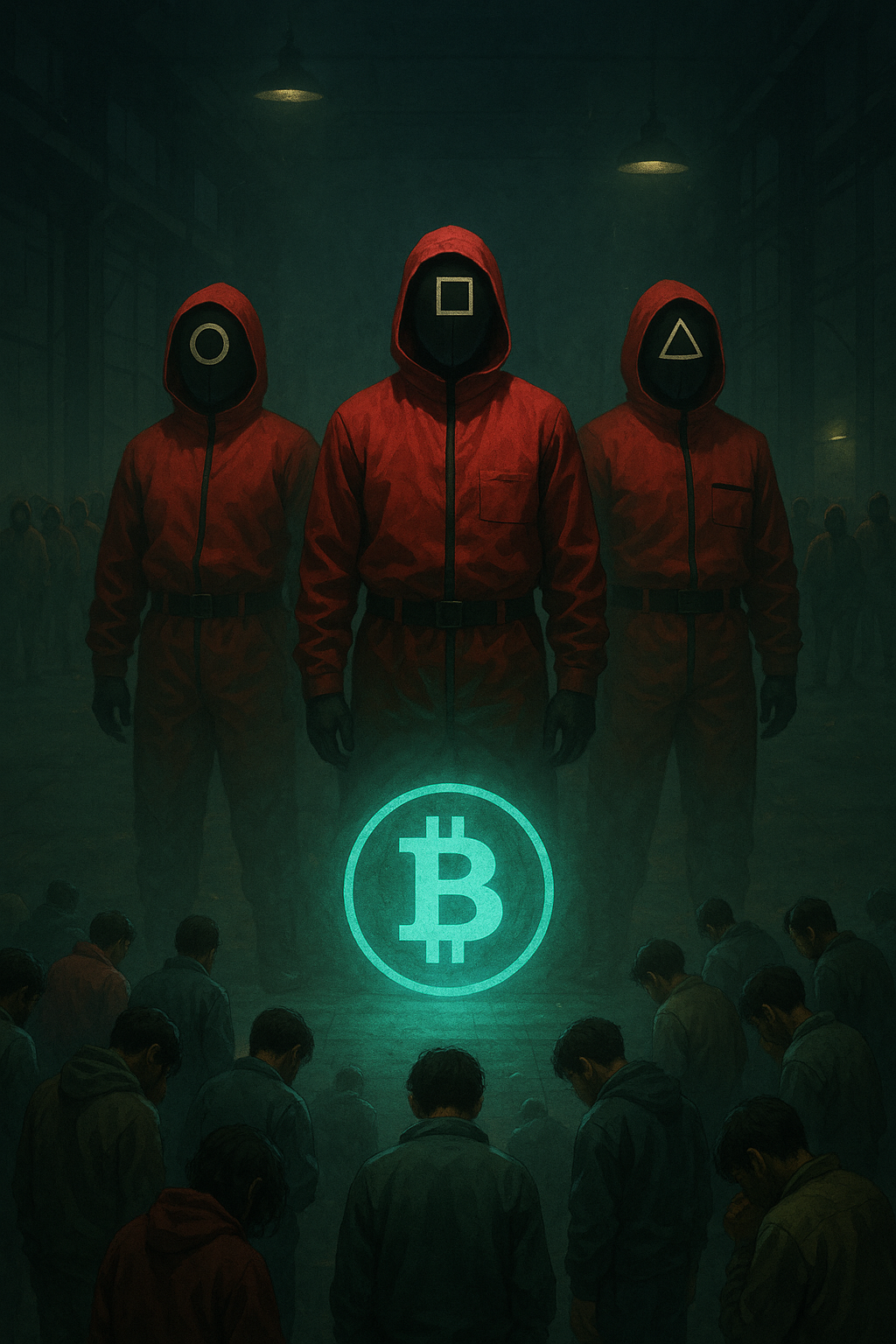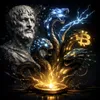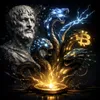In the Korean series Squid Game, a dystopian image of modern society reaches its climax: people trapped in financial desperation agree to participate in deadly games where only one survives—and becomes unimaginably rich. What initially appears to be an extreme thriller reveals itself, upon closer examination, to be a razor-sharp critique of our economic system and value structure. Behind the bloody children's games lies a bitter truth: greed, inflation, and a centralized monetary order have turned people into desperate gamblers who risk their lives for a chance at wealth.
Greed as a Biblical Sin and Modern Driving Force
Greed—avaritia—is one of the seven deadly sins in Christian doctrine. It corrupts character, leads to dehumanization, and destroys communities. In Squid Game, it is not only the driving force behind the organizers, but also the participants: all of them hope to start a new life by winning the prize. But the system is designed so that personal wealth can only arise through the death of others—a perverse zero-sum game that destroys social bonds and turns people into enemies of one another.
Man becomes a wolf to man—a thought already formulated by Thomas Hobbes. In Squid Game, this idea is manifested drastically: trust is an illusion, cooperation is a risk that can be punished by death. The only way out of poverty is through a game whose rules are lethal—or by giving up voluntarily, which leads back to an equally merciless reality.
The Role of the Spectators: Pure Cynicism
Particularly telling is the role of the wealthy spectators of the games. They already have everything they want—and yet still hunger for entertainment through the suffering of others. They embody unrestrained capitalism in its most perverted form: wealth based on the exploitation and death of the poorest, turned into mere amusement. The lack of empathy is total.
This social elite is reminiscent of real-world elites who bet on the ruin of others through speculative financial products—much like during the 2008 financial crisis or in today’s derivatives market.
Here too, people "bet" on entire systems collapsing in order to enrich a few. What ends fatally in Squid Game is, in the real-world fiat financial system, standard practice. Central banks—as modern creators of money—act like "time thieves," devaluing everyone's purchasing power through inflation. Those close to the money source (e.g., governments, banks, corporations) benefit first—everyone else pays later through rising prices, expropriation by devaluation, and social division.
Fiat Money, Inflation, and Social Destruction
The series presents an exaggerated reality: in a system based on debt-driven fiat money, people are trapped by compound interest and inflation in increasingly hopeless situations. Desperation drives them into games, jobs, or dependencies from which there is no escape—except through death or total submission.
The central banks act like modern gods, creating money out of nothing—but also crises, inequality, and cynicism.
Inflation is not just an economic phenomenon—it transforms society on a structural level: mistrust increases, frugality is punished, short-term thinking and speculative behavior rise. The value of labor falls while the value of assets rises. This gives rise to a society in which the moral compass is destroyed—where justice is no longer a collective ideal but degenerates into an individual concept.
Justice as an Individual Concept
In Squid Game, each player has their own idea of justice: some want to repay debts, others want to save their family or redeem themselves. But in a system that pits everyone against each other, this subjective morality becomes a farce. Institutions fail, the rules are lethally unfair, and cooperation is only possible in rare moments.
This moral disintegration mirrors the real world, where people must choose between survival and integrity. If justice is not protected collectively, it remains nothing more than a fragile hope.
Bitcoin fixes this?
In contrast, Bitcoin—according to many experts—offers a decentralized, limited, and incorruptible monetary system. No central authority can create inflation, and no one can “bet” that others will lose due to monetary policy.
In a Bitcoin economy, there would be no central bank stealing time, and no opportunity to profit from the collapse of currencies.
Bitcoin could—so the ideal—create a fairer incentive system: performance and frugality would be rewarded again, long-term thinking encouraged. There would be no privileged users of money who benefit from proximity to power, but an open, transparent system that protects ownership and freedom.
But here too, the question arises: is humanity ready for a system based not on greed, but on responsibility?
Conclusion: The Real Game
Squid Game is a mirror of our society—a bloody but accurate parable about the destructive power of greed and the consequences of an unjust monetary system. It shows how quickly people descend into darkness when they are played against each other by a broken system. But the series also raises a critical question: if the game is deadly, why do we continue to play?
Perhaps it is time to change the game—or create a new one.
Bitcoin could be the beginning of that.

Sinautoshi
#Bitcoin only - #GetOnZero - united we fix the money (supply to 21M BTC)



